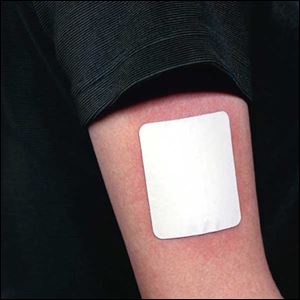
Area firms offer incentives to give up smoking
3/1/2007
Some companies cover the cost of nicotine patches.
Faced with Ohio's new smoking ban that will soon be enforced statewide, many area companies and organizations are trying to get their workers to quit smoking.
One is offering a $300 bonus to any employee who gives up the habit. Another gives $50 to workers signing pledges to quit, and then $50 if they keep the pledge for a month, $50 more after three months, and $100 more after six months.
A number of companies offer smoking-cessation classes, and some pay for nicotine-replacement aids such as patches, gum, or lozenges. Others pay for prescription drugs to help workers stop, according to a recent survey of 160 firms and organizations by the Employers Association in Sylvania.
Some firms said they would pay for other types of treatment, such as hypnosis and acupuncture.
"With the law changing, people are getting on the bandwagon," said Marsha Drees, director of the Symmetry Wellness division of Harbor Behavioral Healthcare in Toledo.
The law, passed by voters in November, prohibits most smoking indoors in public places, including offices, restaurants, and stores. Specific rules are now under review by state health officials, but have been opposed by some restaurant and bar owners. Smoking is known to cause cancer, as is breathing secondhand smoke.
Ms. Drees' organization has conducted about 10 "behavior-modification" classes so far, most with groups of 10 to 20 workers for an hour at a time for eight weeks.
Smoking cessation programs have become popular nationally. About 15 percent of 950 large companies offered help last year, up from 9 percent in 2005, according to Hewitt Associates, a human-resources consulting firm in Lincolnshire, Ill.
Locally, nearly a third of the Employers Association survey of mostly small and midsized businesses said they offer stop-smoking classes or counseling. An additional 13 percent offer options such as patches or prescription drugs, and 9 percent said they pay for nicotine patches.
Among the respondents, two-thirds said workers have accepted the ban. Less than 1 percent of workers requested a covered area outside the business in which to smoke.
Nearly 90 percent of businesses in the local survey said they are smoke-free. Four percent said they refuse to hire smokers.
Firms offering cash rewards were not identified, said Dave Tippett, of the trade association conducting the survey.
Demand is "pretty high" for the stop-smoking classes, said Patricia Volz, executive director of the American Lung Association of Ohio's 28-county regional office in Norwalk. Her office likely will hold classes for about 1,000 people in northwest Ohio this year, largely at corporate sites, for groups of 10 to 20. The eight-week course costs $150 a person.
Laura Ritzler, director of the Positive Lifestyles wellness program at Fostoria Community Hospital, said her classes cost about $600 and typically have four to eight participants.
The new Tobacco Treatment Center at Maumee's St. Luke's Hospital has its first corporate class for a manufacturing firm and will start another one this month, said Debbie Matthews, supervisor of the center.
The classes are more successful if workers are using nicotine-replacement products such as patches, gum, lozenges, and/or prescription drugs, she said.
Nicotine-replacement products tend to cost about the same as a pack of cigarettes, $3.25 to $4.50 a day.
The drugs - including Chan-
tix, Zyban, Wellbutrin, and Bupropion - run from about $100 to over $200 a month at local drugstores. Some insurance companies pick up at least part of the tab.
The Ohio Tobacco Prevention Foundation in Columbus is working with about 50 companies statewide in a program offering patches to workers, half paid for by the foundation and half by the firms.
Barbara Phibbs, an acupuncturist in the Jobst Tower at Toledo Hospital, said she has not picked up a lot of corporate business but expects to.
Her treatment costs $150 to $250 at first, but severely addicted smokers may require several additional treatments, at $60 to $80 each, she said.
Contact Homer Brickey at:
homerbrickey@theblade.com
or 419-724-6129.